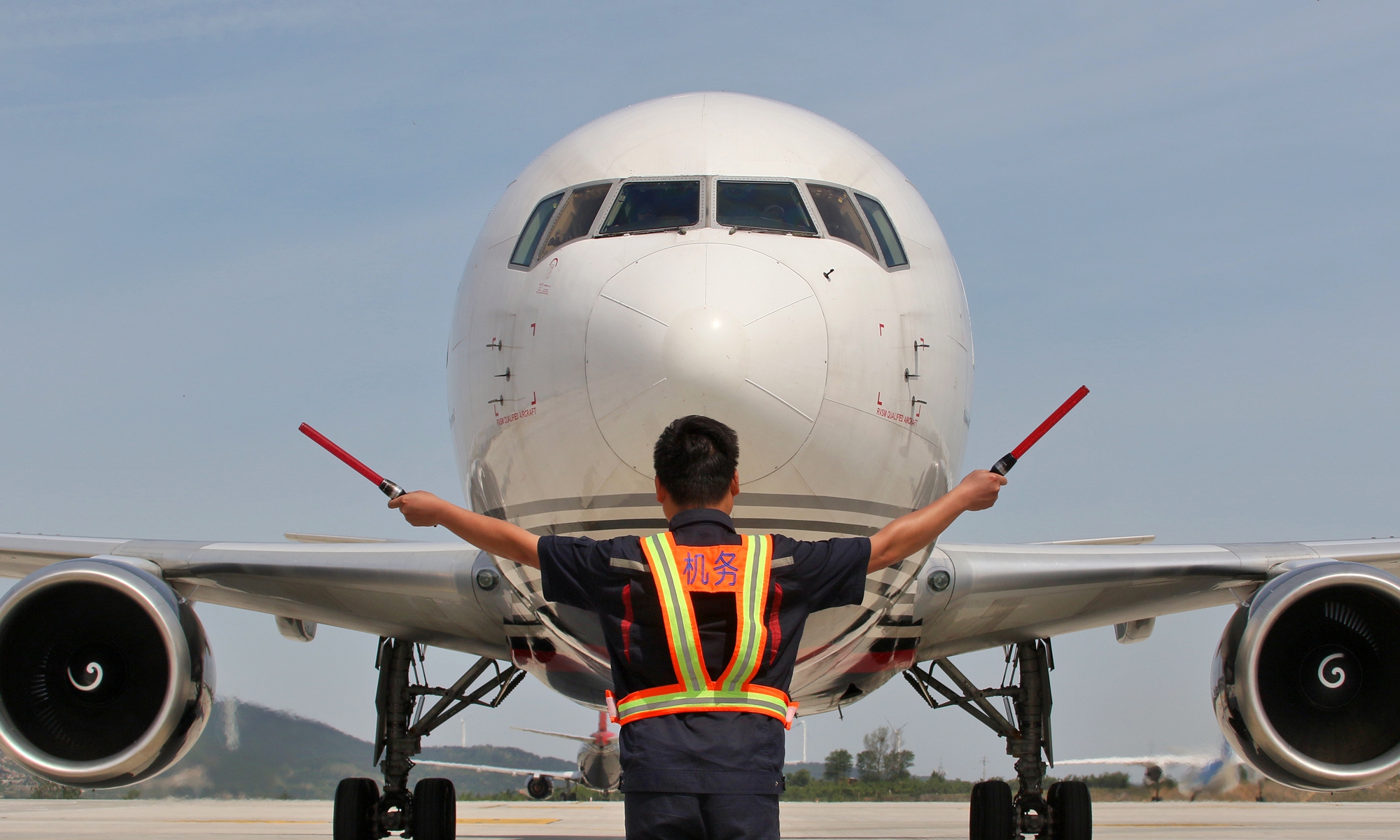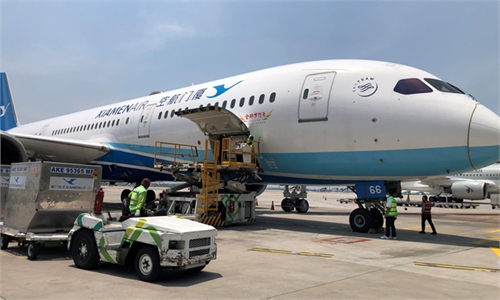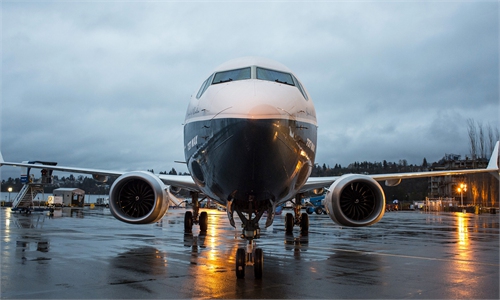
A Boeing 767-300BCF owned by SF Airlines at an airport in Yantai, East China's Shandong Province in June 2018. File photo: VCG
After losing six quarters in a row, Boeing CEO urged the Biden administration to establish good trade relations with China, and said that the aircraft orders from China will be the key to the company's long-term development.
It has been the second time for the senior executive to have such remarks within one month. Boeing urged the US to keep human rights and other disputes separate from trade relations with Beijing, and warned European rival Airbus would benefit if the US plane maker was locked out of China, Reuters reported on March 31.
Market watchers said that more overseas players including Boeing viewed China as an important part in its business recovery as Chinese airlines industry has kept growing.
Plagued by production problems and the weakness of the global aviation market, the plane manufacturer's first quarter reported a net loss of $561 million for the first three months of 2021 on revenue of $15.2 billion, 10 percent lower than last year.
We will continue to engage with leaders in both countries [US and China] to urge a productive dialogue, reiterating the mutual economic benefits of strong and prosperous aerospace industry. China represents 25 percent of the global growth in our industry over the next decade, CEO Dave Calhoun said on a quarterly call Wednesday.
Since 2019, Boeing's position as the world's largest aircraft manufacturer has been shaken by European aircraft producer Airbus for two consecutive years.
Due to the global grounding of the firm's main model 737MAX after major air crashes and global pandemic, the company only delivered 157 aircraft in 2020, with production falling to the lowest level in nearly 50 years.
In 2020, Boeing achieved revenue of $58.158 billion, a year-on-year decrease of 24 percent, with revenue from the Chinese market coming in at $1.803 billion, a year-on-year decline of 68.3 percent.
"China is an important market for our commercial airplanes and order activity from China will affect our future production rates," CEO Dave Calhoun said.
Boeing's orders from China plummeted to the bottom during the trade disputes between China and the US.
From May 2017 to the end of March 2021, Boeing received only 15 passenger planes orders from China. In comparison, in April 2019, China accounted for a large order for 300 passenger planes with Airbus.
From 2012-2016, Boeing data showed that the cumulative global order was 6,146, and China placed a total of 732 aircraft.
Since 2018, the US and China imposed an escalating series of tariffs on each other's imports. Certain aircraft parts and components that Boeing procures are subject to these tariffs. The US and China entered into phase one agreement in January 2020. However, implementation of this agreement is incomplete and overall diplomatic relations between the US and China have deteriorated, according to the fiscal report from Boeing.
We continue monitoring developments for potential adverse impacts to the company, the fiscal report said.
Market confidence
Deputy director of Civil Aviation Administration of China (CAAC) Hu Zhenjiang met with president of Honeywell China on Wednesday, with the two parties discussing the application trends for new aviation safety technologies.
Further, more carriers also vowed to increase seats between China and the US, after the US eased travel bans on Chinese students on Monday.
Delta Air Lines confirmed to Global Times on Thursday that its US-China seat capacity will increase from May 1 or this Saturday.
The Atlanta-based carrier said it will reopen middle seats to passengers on all flights between China and the US, which will increase the total seat capacity by nearly 20 percent.
Middle seats have been blocked to ensure social distancing between passengers since April 2020.
Delta will also resume service between Seattle and Shanghai on May 1, two flights per week, while operating another two weekly flights between Detroit and Shanghai, thus becoming the only carrier that will offer gateways to China from the east and the US Midwest.
The carrier is operating four weekly flights between Shanghai and the US via Seoul, based on an agreement between China and the US.
Wong Hong, Delta's president of China operations, said he hopes that there will be more (increased flights) opportunities throughout the second half of the year.
With the arrival of the summer vacation, the passenger load factor of flights from the US to China will further increase, mainly due to Chinese students returning to China. Therefore, it is hoped that the Sino-US routes can further relax the capacity restrictions, Wong said, but he said this will mainly depend on the development of the epidemic, and the coverage rate of vaccine.
China's Foreign Ministry said that China is also coordinating on receiving foreign students in China for academic programs on the premise of ensuring safety against the COVID-19 epidemic, and will work with relevant parties to jointly promote in-person exchanges with the international community.



